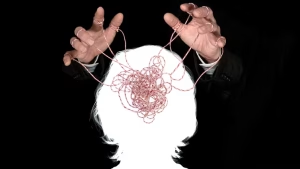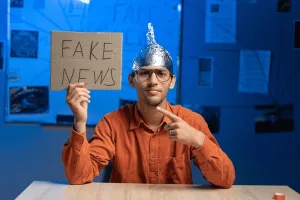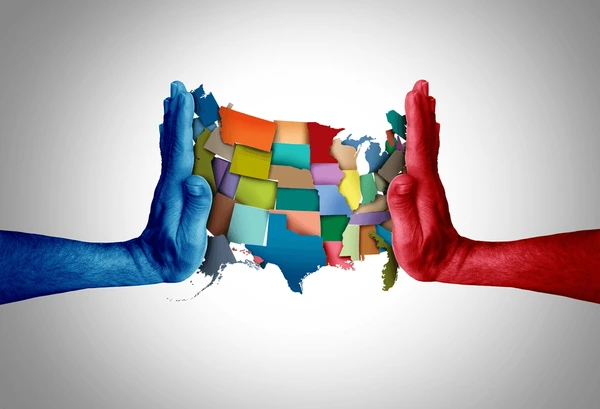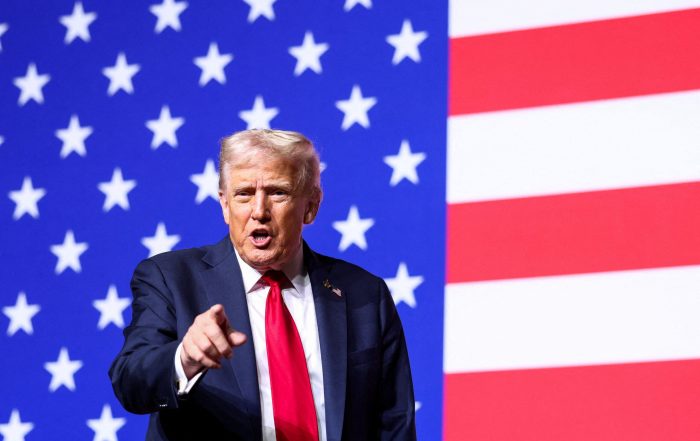Conspiracy Theory
I suppose people have always held views that were not backed by facts, but conspiracy theories seem to have gained momentum in the last decade or two. What is it, what causes it, and who is vulnerable to buying in?
Let’s start with defining conspiracy theory. The Oxford defines it as a belief that some influential or controlling organisation or group is secretly responsible for a notable event or phenomenon.
In other words, something that happens is not a random event. There is some force controlling the event. I would expand on what Oxford says and suggest that it also includes causes for certain things happening that are not currently identified by science. You can easily point to COVID and all the theories about what caused COVID. You can examine the current debate in the US regarding vaccines.
Asking why requires us to examine several factors. It would be easy to say that someone who is responsible controls where the information comes from and is suppressing the truth. Of course, people like Rupert Murdoch have been doing this for years. It doesn’t mean everything they say is untrue. It means some is true, and some is not.
 A conspiracy or alternative truth requires several things.
A conspiracy or alternative truth requires several things.
- A situation where the reason is either complex or unknown.
- People are receptive to a theory that is outside the mainstream.
- A proposition that aligns with non-mainstream ideas.
- A cause that is either unpopular or fits some deep-seated bias.
To take those four points, we can start with the unknown or complex situation. It is comfortable to see a direct cause and effect. Put your hand in a fire and you get burnt. Become a drug addict and you could die. The tricky part is when you have a problem that you had no part in creating. Once in a century, floods take away your house. You get lung cancer and never smoked.
The second point is the people. Not everyone is equally vulnerable. Research shows certain traits or circumstances increase susceptibility:
- Sense of no Control
People who feel powerless or marginalised (economically, socially, or politically) are more likely to embrace conspiracies as a way of making sense of events. If they are disadvantaged, someone must be forcing them to be impoverished.
- Refusal to accept Responsibility
Maybe you need someone to blame. You need to create your own explanation. You got lung cancer because someone stressed you so much. Perhaps it was because you lived in a house with too much lead paint. Having someone or something to blame helps us cope with difficult situations. It is perfectly natural to look for a reason and somewhere to put the regret for what is happening to us.
It is a way for people to avoid blaming themselves.
“I know I smoked a pack a day for twenty years, but I have lung cancer because of the lead paint.”
- High Need for Cognitive Closure
People who dislike ambiguity or uncertainty prefer definitive (even if incorrect) explanations. A 100-year flood might happen the day you move into your new house. It must be a conspiracy, as there is no other plausible explanation. - Higher Anxiety or Paranoia
Individuals with anxious or suspicious personalities are more likely to perceive hidden motives. “They are out to get me.” - Lower Trust in Institutions
Distrust in mainstream news, government, or science correlates strongly with belief in conspiracies. The Internet is full of reports of graft and corruption, so why wouldn’t you believe everyone is corrupt?
 Another aspect is the number of conspiracies that came out after the event. Watergate to Roboform are events that took years to call out. Maybe the current situation is just another event like those.
Another aspect is the number of conspiracies that came out after the event. Watergate to Roboform are events that took years to call out. Maybe the current situation is just another event like those.
- Narcissism or “Collective Narcissism”
Individuals or groups who feel their identity is undervalued or threatened may adopt conspiracies to explain their situation (“they’re out to get us”). There is a sense of belonging if you are with a group that claims to be the only ones who know the absolute truth. - Low Analytical Thinking / High Intuitive Thinking
Individuals who tend to rely more on gut feelings rather than critical or analytical thinking are more likely to believe in conspiracies. “I don’t believe the science because my gut tells me vaccines are harmful.” - High Openness to Unusual Beliefs
Interest in the paranormal, alternative medicine, or spirituality sometimes correlates with conspiracy acceptance (but not always negatively). Why believe the obvious when the unusual is more interesting? It is the reverse of Ochom’s Razor.
The third point is a proposition that aligns with non-mainstream ideas. If you look at where these ideas come from, there is often a grain of truth. Like a grain of sand, they are an irritant that grows into a pearl, which people value. A research study might find a correlation between Vitamin A and a type of cancer. Does Vitamin A cause cancer?
I can prove through research that there is a correlation between ice cream and sunburn. In the summer, ice cream consumption increases, and there is a corresponding rise in sunburn; hence, a correlation exists.
This is why scientists talk about correlation and causation. Just because there is a connection, it doesn’t mean one causes the other.
 Finally, a cause that is either unpopular or fits some deep-seated bias. The master of picking some deep-seated bias and exploiting it is the US President. The recent Trump pronouncement that Tylenol taken by pregnant women causes ADHD was another theory based on a kernel of truth. A research study found a slight correlation between Tylenol consumption during pregnancy and ADHD. Further analysis did not find any causation.
Finally, a cause that is either unpopular or fits some deep-seated bias. The master of picking some deep-seated bias and exploiting it is the US President. The recent Trump pronouncement that Tylenol taken by pregnant women causes ADHD was another theory based on a kernel of truth. A research study found a slight correlation between Tylenol consumption during pregnancy and ADHD. Further analysis did not find any causation.
For example, women taking Tylenol must have been taking it for a reason. Did they have more fevers, which are harmful to developing babies? Was the medication for headaches, and what caused the headaches? Were the headaches a symptom of something detrimental to the foetus?
Numerous doctors and scientists have stated bluntly that there is no proof that Tylenol will cause ADHD. Will this be enough to convince everyone? Not if you fit in one of the categories described earlier.
Most conspiracy theories can be disproven by either physical evidence or science. Challenging the person about the theory is not likely to convince them. It is more productive to ask them whether they believe in science and evidence. If they say “no”, you don’t have much chance of changing their mind with facts.
It is rare to shift any views, but one I did at least rattle was a US doctor I met in the Amazon. He was convinced that artificial climate change was a hoax. By stages, I got him to agree that:
- The world had balanced carbon dioxide generation and removal through plants and trees for thousands of years up to the Industrial Revolution.
- Since the Industrial Revolution, we have pumped more carbon dioxide into the air.
- Since that time, we have chopped down massive amounts of forests (we were in the Amazon).
- As we had produced more CO2 and reduced the capacity to remove it, the formula told us there was a man-made surplus of carbon dioxide.
The fact that, after a decade, I still remember him becoming gradually more accepting of the possibility that there might be something to climate change tells you how rarely you can influence the thinking of a conspiracy theorist.
Conspiracy theories have been around forever. If you think about it, the comment that “God moves in mysterious ways” is a form of conspiracy theory. This “God” is responsible for both good and bad things happening. It is not me, nor the state, nor even fate. It is God.
Mankind has burnt witches at the stake, gone to war, and annihilated civilisations in the name of some conspiracy theory. The ones we worry about today are merely a continuation of centuries of distrust and a quest for understanding the unknown.






